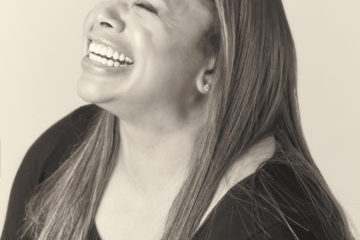Novelist’s mystical Jerusalem
An interview with Ruchama King Feuerman
By Masada Siegel, Special To The Dayton Jewish Observer
At 17, Ruchama King Feuerman bought a one-way ticket to Israel to seek what she describes as her spiritual fortune.
Feuerman, a native of Nashville who grew up in Virginia and Maryland, spent 10 years in Israel, where she taught Torah, and also learned from every situation that presented itself to her.

“Israel had a big effect on me, too,” she says from her home in New Jersey. “It’s the kind of place where outrageous stories are handed to you on a platter, and then you have to tone them down to make them believable. Sometimes I’ll try to write a story with a setting outside of Israel, but then after a few pages I’ll find myself drifting back to Jerusalem.”
Jerusalem is the setting for her myster novel, In the Courtyard of the Kabbalist, a 2013 National Jewish Book Award Finalist.
Feuerman comes to Dayton on Nov. 5 as part of the JCC’s Cultural Arts & Book Fest.
Kabbalah is the ancient Jewish mystical tradition. Feuerman attributes the inspiration for her latest novel to her encounter with a rabbi steeped in Kabbalah in Jerusalem.
“In Israel, everyone visits Kabbalists: people from all walks of life, heads of parliament, people seeking advice before operations, soccer players to improve their games and soap opera stars, in addition to the black hats,” Feuerman explains.
“Years ago, when I lived in Jerusalem, I met a Kabbalist. We actually laughed together. It may sound odd but it was the best moment of my life. For years afterward, whenever I needed a lift, I would remember the rebbe’s laughter — our co-mingled laughter — and it sustained me. Sometimes I think I wrote In the Courtyard of the Kabbalist in order to relive that laughter, to re-experience the courtyard and the seekers I met there, and the seeker I was then.”
Set in the late 1990s, the novel revolves around a 40-year-old New Yorker who sells his haberdashery on the Lower East Side a month after his mother’s death, and then makes aliyah (immigrates to Israel).
There, he becomes the assistant to a revered rabbi. His life intertwines with a newly religious young woman, also from America, and a Muslim janitor who works on the Temple Mount. A piece of ancient pottery the janitor finds hurls the plot in motion and binds the characters together.
Feuerman says her passion for writing comes from a psychological need to be at a safe distance from people, and at the same time to be in the “pulse of life” with everyone’s problems.
 “There’s a Chasidic concept, being in velt, oist velt, a quality of being in the world and out of the world at the same time,” she explains. “I think the concept was meant to apply to praying but could apply to the writing process, too. Human beings tell stories in order to get themselves out of impossible predicaments. And the impossible predicament is life.”
“There’s a Chasidic concept, being in velt, oist velt, a quality of being in the world and out of the world at the same time,” she explains. “I think the concept was meant to apply to praying but could apply to the writing process, too. Human beings tell stories in order to get themselves out of impossible predicaments. And the impossible predicament is life.”
In life, she says, we don’t always have the chance to fix our mistakes. That’s what she loves about the writing process: “You get that second chance to get it right.”
The author says her father had a big effect on her life.
“He had turned his life around and become interested in Torah-observant Judaism in his mid-30s,” she says. “He was full of sincerity and religious enthusiasm, akin to someone who’d seen the light, and yet, despite himself, his natural skepticism and irreverence kept rising to the surface. Something in that blend — sincerity and irreverence — has always appealed to me and influences the way I like to write.”
The JCC Cultural Arts & Book Fest presents novelist Ruchama King Feuerman on Wednesday, Nov. 5, 7 p.m. at the Boonshoft CJCE, 525 Versailles Dr., Centerville. The cost is $5 in advance, $8 at the door and includes a dessert reception sponsored by Chabad Women’s Circle following Feuerman’s talk. To R.S.V.P., click here.
To read the complete November 2014 Dayton Jewish Observer, click here.





